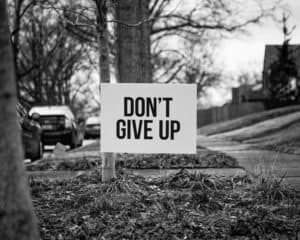Spring is here – are you ready to tap into the abundance of your sexual energy?
 Yes. Spring is here, no question.. the flowers are bursting with colors, the poppies are flaming the hillside, the bees are humming in frenzy, the sacred Yuba River is flowing with abundance our much-needed water. Nature is alive. And so are we.
Yes. Spring is here, no question.. the flowers are bursting with colors, the poppies are flaming the hillside, the bees are humming in frenzy, the sacred Yuba River is flowing with abundance our much-needed water. Nature is alive. And so are we.
As we awake from our long winter hibernation, we humans also start buzzing with that powerful force of nature’s sexual energy.
As we respond to our DNA’s ancient call to find a mate, copulate, have sex, and reproduce; we uniquely also answer to our special human form of the call of ‘spring’; to partner, to fall in love, to make love.
When I sit in my office with my clients, at therapy sessions, weather it is a couple, or an individual, a teenager, or an 85 year-old, chances are, that no matter what the ‘presenting problem is’, at some point in the session and the conversation, the subject will be ‘SEX‘.
 Though at times I will refer to sex as ‘Sacred Energy eXchange‘, and that it is, that elixir of love, that potion of passion and desire, that magic that lift us, it can all too soon become the source of pain, jealousy and despair. How is it that sex can tap into our most sublime states, and at the same time also be the root of our pain and disappointment.
Though at times I will refer to sex as ‘Sacred Energy eXchange‘, and that it is, that elixir of love, that potion of passion and desire, that magic that lift us, it can all too soon become the source of pain, jealousy and despair. How is it that sex can tap into our most sublime states, and at the same time also be the root of our pain and disappointment.
It’s the power of sex. It is the origin of us. It is the force of nature working through our bodies, calling us to listen and to dial into its omnipotent potential. When we are connected to our partner in sex, we are open, naked, vulnerable, we let someone in, we allow the other to touch us, caress our naked body, penetrate us, become one with us. It is ultimately, a heightened, highly aware sense of pleasures. Many who talk about different forms of spiritual ecstasy, use similar language to our erotic sexual experiences.
 Many of us baby boomers are still in the hold of the guilt and shame and secrecy of the ‘joy of sex’. We painstakingly learned to accept that we are sexual beings. As our generation grew up, we started to read and write books about ‘how to make love‘, or ‘how to enjoy sex‘, we started to allow the conversation to begin. But how often in my therapy session, I find partners, young and old, still being shy, embarrassed, shameful, intimidated and awkward, talking about the topic of their sex life. There are books, YouTube’s, sex videos and DvDs, their are sex workshops and retreats, there is an erotic revolution going out there, but most people, lovers, are still stuck. Spring may be calling, but we miss the call.
Many of us baby boomers are still in the hold of the guilt and shame and secrecy of the ‘joy of sex’. We painstakingly learned to accept that we are sexual beings. As our generation grew up, we started to read and write books about ‘how to make love‘, or ‘how to enjoy sex‘, we started to allow the conversation to begin. But how often in my therapy session, I find partners, young and old, still being shy, embarrassed, shameful, intimidated and awkward, talking about the topic of their sex life. There are books, YouTube’s, sex videos and DvDs, their are sex workshops and retreats, there is an erotic revolution going out there, but most people, lovers, are still stuck. Spring may be calling, but we miss the call.
In her Elephant Journal article, Kristin Luce talks about the healing powers of sex and where that power comes from:
“…it began to occur to me that only in sex do we touch each other in the same place that we were conceived, that we were born, that we were nursed, and only in sex can we be held, adored and physically met in that same place. Perhaps that kind of sex is the only way that certain kinds of healing can take place. Our bodies themselves need to know that we are truly met, along with our hearts and minds.”
 According to Dr. Sue Johnson, clinical psychologist, author of Hold Me Tight and Love Sense, and the initiator of Emotionally Focused Therapy, EFT , the leading model in couples therapy, the secret to prolonged erotic sex is in the secure connection.
According to Dr. Sue Johnson, clinical psychologist, author of Hold Me Tight and Love Sense, and the initiator of Emotionally Focused Therapy, EFT , the leading model in couples therapy, the secret to prolonged erotic sex is in the secure connection.
‘Early on in a relationship, passion comes very easily to most couples. Almost every touch, glance or word is loaded with desire. But what happens to passion when you are six months into a relationship, or even 60 months in – or 60 years? Is it inevitable that it will fizzle out eventually or can you expect passion to last and even grow?’
Dr Sue Johnson believes that ‘the passion of infatuation is just the hors d’oeuvre. Loving sex in a long-term relationship is the entrée’. If we want to have great sex in a long-term relationship, then we need emotional connection and if we want to have emotional connection we need great sex. The two go hand-in-hand. Johnson believes you will have different goals for your sex life, depending on how comfortable you are with closeness overall and how safe you feel in needing your partner. She calls these three kinds of sex Sealed-Off Sex, Solace Sex, and Synchrony Sex.
 So how do we maintain that magic even after those months or even the years, of the ‘honeymoon phase’ of a relationship, start to fade? Can that original powerful magic be sustainable? One of the toughest issues I face with my clients, couples or singles, is when that alluring elixir of love, that potent sexual energy ecstasy and desire is no longer there. We panic, we fall ‘out of love’, we become heart broken. Even if we are in a secure relationship and at the best of cases, we can talk about it, and even make it to therapy, it is still a loss that need to be attended to. Can we rescue it, rekindle it’s magic? As a couples therapist I say that this is a one of those ‘issues’ that bring couples into the therapy office.
So how do we maintain that magic even after those months or even the years, of the ‘honeymoon phase’ of a relationship, start to fade? Can that original powerful magic be sustainable? One of the toughest issues I face with my clients, couples or singles, is when that alluring elixir of love, that potent sexual energy ecstasy and desire is no longer there. We panic, we fall ‘out of love’, we become heart broken. Even if we are in a secure relationship and at the best of cases, we can talk about it, and even make it to therapy, it is still a loss that need to be attended to. Can we rescue it, rekindle it’s magic? As a couples therapist I say that this is a one of those ‘issues’ that bring couples into the therapy office.
Is it inevitable that that power that brought us together will abandon us, leaving us heartbroken and disappointed?
Psychotherapist Esther Perel is changing the conversation on what it means to be in love and have a fulfilling sex life. For the first time in human history, couples aren’t having sex just to have kids; there’s room for sustained desire, for couples to cultivate long-term sexual relationships. But how? Perel, a licensed marriage and family therapist, travels the world to help people answer this question.
 For her research Perel works across cultures and is herself fluent in nine languages. She coaches and consults with organizations and families, holds a private psychotherapy practice in New York, and speaks regularly on erotic intelligence, trauma, conflict resolution and infidelity. She is the author of Mating in Captivity: Reconciling the Erotic and the Domestic.
For her research Perel works across cultures and is herself fluent in nine languages. She coaches and consults with organizations and families, holds a private psychotherapy practice in New York, and speaks regularly on erotic intelligence, trauma, conflict resolution and infidelity. She is the author of Mating in Captivity: Reconciling the Erotic and the Domestic.
Her 2013 TED talk, the “Secret to Desire in a Long Term Relationship,” had one million hits in the first two weeks it was posted, taking on an apparent epidemic of low-libido marriages in what is theoretically the least repressed era in modern history. (That may be part of the problem: “How can you desire what you already have?” Ms. Perel often asks in her talks.)
We see how powerful the force of sex is when we watch politicians and imminent public figures get lost and devastated by sex’s enormous power. We can say it is the abuse of power, but we can not deny that at times, when it is truly stronger than us, we are swept up by its current, unable to resist.
In her Psychology Today article, Pepper Schwartz invites us to acknowledge the power of sex and to have compassion and not just judgment when we are faced with its powers.
What is most clear to me after decades in the therapy office is that the most important thing is that we are ‘talking about sex’. The secret is out, we are allowing ourselves to talk, to ask, to question, to share, to want, to desire.
 We are in the times of leaving behind shame and guilt and embrace ourselves as sexual beings, full with desire, and sexual energy. We are willing to admit and embrace that SEX can be complex, difficult, beautiful, magical, painful, it is all of the above. It is the ‘agony’ and the ‘ecstasy.’
We are in the times of leaving behind shame and guilt and embrace ourselves as sexual beings, full with desire, and sexual energy. We are willing to admit and embrace that SEX can be complex, difficult, beautiful, magical, painful, it is all of the above. It is the ‘agony’ and the ‘ecstasy.’
We are learning to understand and accept that the power that made each one of us needs to be allowed to continue to flow in our life, and as this spring is awakening those deep forces in us, do not resist, allow, stand by with curiosity and surprise. You too can be swept away into its current. Surrender.
 If you would like to explore your own obstacles to reaching your full potential for sexual fulfillment and learn how to talk about sex with your partner, consider contacting me for a free consultation. I also offer couples workshops where in an intimate and safe environment we learn how to recognize our obstacles and how to communicate.
If you would like to explore your own obstacles to reaching your full potential for sexual fulfillment and learn how to talk about sex with your partner, consider contacting me for a free consultation. I also offer couples workshops where in an intimate and safe environment we learn how to recognize our obstacles and how to communicate.


 How to find light when darkness is around us, and how do we turn to loved ones to get comfort?
How to find light when darkness is around us, and how do we turn to loved ones to get comfort? We are realizing that the world is getting smaller, that we are all connected, and that we need to rely and depend on each other. Community, family, relationships, and tribal connection are in our DNA and though some of us may be living in tribes of 1 or 2, reaching out to others becomes ever-so important! It is in those times of stress and of celebration that creating and maintaining our secure attachment connections becomes paramount.
We are realizing that the world is getting smaller, that we are all connected, and that we need to rely and depend on each other. Community, family, relationships, and tribal connection are in our DNA and though some of us may be living in tribes of 1 or 2, reaching out to others becomes ever-so important! It is in those times of stress and of celebration that creating and maintaining our secure attachment connections becomes paramount.  Few months present the multicultural celebrations that December does! Whether you celebrate Christmas, St Nicholas Day, Kwanzaa, Hanukkah, Solstice, Diwali, Kwanzaa, St. Lucia, Eid al-Fitr, Boxing Day, Saturnalia, Three Kings Day… or any other holiday this month, chances are that it is celebrated with LIGHTS.
Few months present the multicultural celebrations that December does! Whether you celebrate Christmas, St Nicholas Day, Kwanzaa, Hanukkah, Solstice, Diwali, Kwanzaa, St. Lucia, Eid al-Fitr, Boxing Day, Saturnalia, Three Kings Day… or any other holiday this month, chances are that it is celebrated with LIGHTS. Traditions of sitting around the fire, with lights, decorations, music, special foods and feasts, abound. Here in the US, our celebrations include giving gifts, parties, and family get-togethers, which can be wonderful and/or stressful.
Traditions of sitting around the fire, with lights, decorations, music, special foods and feasts, abound. Here in the US, our celebrations include giving gifts, parties, and family get-togethers, which can be wonderful and/or stressful. So with some practical tips, paying attention, and following some of the above, you can minimize the stress of the holidays. You may even end up enjoying the holidays more than you thought you would.
So with some practical tips, paying attention, and following some of the above, you can minimize the stress of the holidays. You may even end up enjoying the holidays more than you thought you would.
 ‘Long time ago’ when we traveled we use to use
‘Long time ago’ when we traveled we use to use  Having a map can be useful and important. It helps to know these three places on the map of our lives: Where am I? Where to I want to go? How do I get there?
Having a map can be useful and important. It helps to know these three places on the map of our lives: Where am I? Where to I want to go? How do I get there? At times it’s all about seeing the same landscapes with new eyes.
At times it’s all about seeing the same landscapes with new eyes.
 One of the reasons I love traveling so much is that time stretches. It’s like being in a time machine, living as if time slows down. So much gets packed in a day. It feels like forever. It’s hard to believe it’s only been two weeks since I left town to go visit my daughter in London (with an added bonus of visiting friends in Paris).
One of the reasons I love traveling so much is that time stretches. It’s like being in a time machine, living as if time slows down. So much gets packed in a day. It feels like forever. It’s hard to believe it’s only been two weeks since I left town to go visit my daughter in London (with an added bonus of visiting friends in Paris). can be scary at times.
can be scary at times.
 We provide mental health services to deal with anything from ‘home sickness’ to ‘drug over dose’, to sexual assault and domestic violence.
We provide mental health services to deal with anything from ‘home sickness’ to ‘drug over dose’, to sexual assault and domestic violence. This art installation piece called
This art installation piece called  I am always touched and inspired by the risk and the willingness to ‘take the elevator’ and go into ‘raw spots’, talk about fears, pains, and hurts, move into forgiveness and ask for needs in a way that calls partners in rather then pushes them away. I’m always amazed to be in the presence of and hold space for couples who are moving out of and turning around those metal cages and being open and willing to become those illuminated inner figures in the sculpture of ‘LOVE.’
I am always touched and inspired by the risk and the willingness to ‘take the elevator’ and go into ‘raw spots’, talk about fears, pains, and hurts, move into forgiveness and ask for needs in a way that calls partners in rather then pushes them away. I’m always amazed to be in the presence of and hold space for couples who are moving out of and turning around those metal cages and being open and willing to become those illuminated inner figures in the sculpture of ‘LOVE.’ In these days of uncertainties, with stress over the fires, the drought, mass shootings, and other dangers, local and global, it is more important than ever that we reach out to our loved one/s, to the ‘other’ that we feel #securely #attached to.
In these days of uncertainties, with stress over the fires, the drought, mass shootings, and other dangers, local and global, it is more important than ever that we reach out to our loved one/s, to the ‘other’ that we feel #securely #attached to. Yes. We are mammals and we are wired for connection! When connection is threatened, we feel the primal panic that sends us into a fight-flight danger response. In our important relations it may look like fights – conflicts – protests for connection. We find comfort and strength in the bond with our loved ones. When that bond is questioned, when the bond is in distress, our sense of safety gets triggered, our
Yes. We are mammals and we are wired for connection! When connection is threatened, we feel the primal panic that sends us into a fight-flight danger response. In our important relations it may look like fights – conflicts – protests for connection. We find comfort and strength in the bond with our loved ones. When that bond is questioned, when the bond is in distress, our sense of safety gets triggered, our 
 Almost everyone has had some encounter with ‘depression’. It could be a family member, a close friend, or oneself, at some time in our life. We all get sad, depressed, in the dumps… Whether it is flunking a midterm, failing a test, missing a deadline, being late for a flight, breaking up with a loved one… shit happens, right?
Almost everyone has had some encounter with ‘depression’. It could be a family member, a close friend, or oneself, at some time in our life. We all get sad, depressed, in the dumps… Whether it is flunking a midterm, failing a test, missing a deadline, being late for a flight, breaking up with a loved one… shit happens, right? The normal ups and downs of life mean that everyone feels sad or has ‘the blues’ from time to time. But if emptiness, despair and
The normal ups and downs of life mean that everyone feels sad or has ‘the blues’ from time to time. But if emptiness, despair and  Sadness or downswings in mood are normal reactions to life’s struggles, setbacks, and disappointments. Many people use the word “depression” to explain these kinds of feelings, but depression is much more than just sadness. Some people describe depression as “living in a black hole” or having a feeling of impending doom. However, some depressed people don’t feel sad at all—they may feel lifeless, empty, and apathetic, or men in particular may even feel angry, aggressive, and restless. Whatever the symptoms, depression is different from normal sadness in that it engulfs your day-to-day life, interfering with your ability to work, study, eat, sleep, and have fun. The feelings of helplessness, hopelessness, and worthlessness are intense and unrelenting, with little, if any, relief.
Sadness or downswings in mood are normal reactions to life’s struggles, setbacks, and disappointments. Many people use the word “depression” to explain these kinds of feelings, but depression is much more than just sadness. Some people describe depression as “living in a black hole” or having a feeling of impending doom. However, some depressed people don’t feel sad at all—they may feel lifeless, empty, and apathetic, or men in particular may even feel angry, aggressive, and restless. Whatever the symptoms, depression is different from normal sadness in that it engulfs your day-to-day life, interfering with your ability to work, study, eat, sleep, and have fun. The feelings of helplessness, hopelessness, and worthlessness are intense and unrelenting, with little, if any, relief.
 HOPE – is there help for depression? Do not give up!! There are
HOPE – is there help for depression? Do not give up!! There are 

